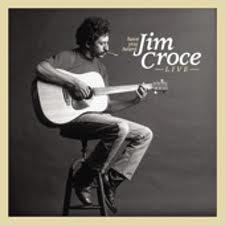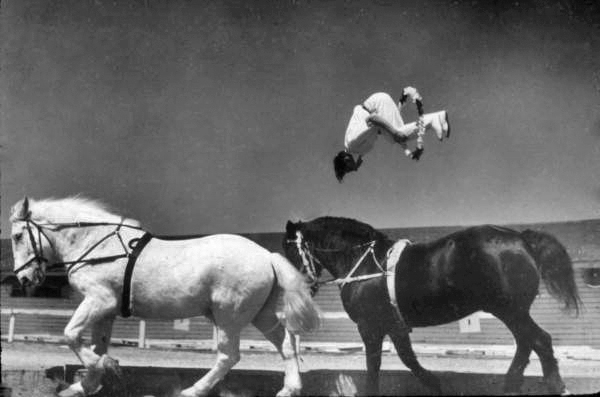|
home | what's new | other sites | contact | about |
||||||||
|
Word Gems exploring self-realization, sacred personhood, and full humanity
Editor's 1-Minute Essay: Dreams
“When dreams are remembered, and their reflections-in-depth are understood, a whole new dimension of wisdom and insight is added to life, bringing greater sanity, meaning, and humor into our existence.” Ann Faraday
"I take dreams as facts." Dr. Carl Jung
What are dreams? An answer here will depend on the philosophical moorings of the respondent; that is, materialism versus consciousness-based reality. Freud, essentially, believed in man as animal-machine. He is famously remembered for his grand assessment that man is little more than a will to pleasure, an avoidance and repression of pain, with hidden sexual reference in much of the animal’s thoughts and activities. Dreams, for the materialist, are but the random misfirings of synaptical riot. There is meaning, they allow, but no supra-meaning to any of it, just as there’s none in any aspect of one's existence at-large. It’s all just an interplay of atomic particles, a purposeless dance of electrons and quarks. (See much discussion in this regard, the materialist platform, on the “evolution” page.) Jung, however, with his growing interest in afterlife and consciousness studies, began to see things much differently. When his father passed on, he experienced a vivid dream-visitation, which deeply affected him. Dreams, for Jung, would issue as a kind of message-in-a-bottle from the deep within, the sacred soul. He counted the dream-experience as “fact,” a meaningful message from our sequestered true selves, to be accessed upon proper interpretation of the dream symbols. Editor’s note: See an extended discussion of the expanding rift between the two great psychiatrists, Freud and Jung, in Dr. Ernest Becker’s Pulitzer Prize winning “The Denial Of Death” – a book I count as one of the most important of my life.
Anne is quite correct. There is much wonder and marvel lying dormant within. And dreams, at times, offer a sneak preview of the splendor to come.
“Every process,” said Jung, in one's life and body “that goes too far … calls forth a compensatory activity.” We must ask "what conscious attitude does it compensate?" In line with this “equilibrium” view, dreams become more vivid, "more strikingly actual, the more we try to repress it." The more we live in denial, the more we repress, the more the inner "true self" will try to get our attention with dramatic dreams; possibly, very distrubing dreams, and often very symbolical in nature. It is "holding the lid down on the boiling kettle," as Eckhart Tolle uses the phrase. "Plus and minus" means that some dreams give us a boost and some try to slow us down, to keep us on track, as per the inner wisdom for oneself. Dreams show us the 'unvarnished, natural truth,' especially when 'our consciousness has strayed too far from its foundations' In our mundane lives, and if we are severely led by the dysfunctional ego, we typically “play roles” and “wear masks,” held up “with two hands,” as Elizabeth Browning warned. The dream state creates a laboratory wherein one tests the limits of good and evil, one’s moral constitution. Dreams serve as deepest internal guidance-system, revealing what one really wants, hopes for, and aspires to. Dreams "are pure nature," said Jung; they show us the unvarnished, natural truth, and are therefore fitted, as nothing else is, to give us back an attitude that accords with our basic human nature when our consciousness has strayed too far from its foundations and run into an impasse." This being the case...
Dreams become the ultimate lie-detector test. In that etheric realm of the soul, it is not possible to tell a lie – to oneself. In dreams, at times, we do tell lies and we might present ourselves disingenuously. But, when we do, we are not deceived. We immediately know – we can feel the energy of untruth right away. We might fool others in a dream-world, but we could never fool ourselves.
Dreams 'divide the sheep from the goats,' sort through the mere place-holders, and unveil the identity of those, or the one, truly loved. Because it is not possible to lie to oneself in a dream – because the experience is being fueled by the sacred soul – you will know, without a doubt, ones, or the one, whom you truly love. Masks fall away in dreams, as do egoic motives, revealing eternally destined love. Let’s recall the ancient Spirit Guide’s phrase, “soul pledges.” If you love someone’s soul, you will know this, in the dream-world, where no lie can exist. Charles Dickens poetically expressed this truth with, “I wish you to know that you have been the last dream of my soul.”
Dreams cannot be interpreted by looking up meanings of symbols in a book.
It is a "grave blunder," said Jung, "to associate dream-symbols with a fixed archetype… look for meaning of symbols as they relate to the conscious situation… renounce pre-conceived opinions." To interpret a dream, center yourself, quiet your mind, recall the dream imagery, float in its energy, and ask yourself, "Where have I felt this energy before?" When you can answer this, you will know the meaning of your dream.
Dreams are better interpreted, said Jung, if part of a series.. And this is why, for those who would like to "map the inner cosmos," it would be a good idea to keep a dream journal. I have done so for close to 15 years and the value of this exercise has been very great. You will begin to see patterns. You will discover recurring themes, over long periods of time. And you will discover, without a doubt, what is most important to you. The truth is, only you, and you alone, can interpret your dreams, because only you can trace the energy "down the rabbit-hole" to source. And a dream journal enhances the entire project.
Dreams, on rare occasions, will not be dreams in the ordinary sense but visitations from a higher realm. Most dreams fade with the morning sun, but a "visitation" will not fade. It is “more real” than one’s ordinary life and stays with you, exceedingly vividly, for years and years, and all of your life.
In the "sitting quietly in a room alone" book, I offered a page discussing how the ego is like a circus rider: desultorially yours Maybe you know the word “desultory.” A desultory conversation could indicate a quick jumping from topic to topic. The Latin root is desultor (n.), "a rider in a circus who jumps from one galloping horse to another.”
The dysfunctional Ego is like this circus rider. The moment you try to slow it down, stop the action, it will jump to a new thought, and then another, and another. The harder you try, by sheer force of will, to sequester it, the more it will leap from horse to horse. Instead of forcing and applying mental pressure, we will need to learn, as Peter Russell put it, how to “relax into the resistance.”
I have come to see that many, not all but many, dreams reflect this "desultory" aspect of the ego. Many of our dreams are nothing more than a nocturnal continuation of what we experience much of the day; in that, we find the ego jumping from one idea to the next in an effort to effect individuation.
notes on Jung's view of dreams: "dreams are the direct expression of unconscious psychic activity" "dreams not infrequently bring to light … the unconscious contents that are the causal factors in neurosis" "the dream gives a true picture of the subjective state, while the conscious mind denies that this state exists" "the dream comes as the expression of an involuntary psychic process … it presents the subjective state as it really is … put dreams on a plane with physiological fact … I take dreams as facts" "dreams (sometime) present etiological factors in the neurosis … also offer prognosis or anticipation of the future" "dreams are (not) merely (wish) fulfillment… also (reveal) ineluctable truths, philosophical pronouncements, illusions, wild fantasies, memories, plans … even telepathic visions" "the dream is especially the utterance of the unconscious… we should not pare down the meaning of the dream to fit some narrow doctrine" "an obscure dream… the first task … is to establish the context," i.e. what is happening in the conscious life of the dreamer an obscure dream is better interpreted if part of a series of dreams… easier "to recognize the important contents and basic themes" "dreams give information about the secrets of the inner life" dreams help to "assimilate" the conscious with the unconsious, i.e. "a mutual interpenetration of conscious and unconscious contents" "the psyche is a self-regulatory system… maintains itself in equilibrium… every process that goes too far … calls forth a compensatory activity… (ask of a dream) "what conscious attitude does it compensate?" dreams are "plus and minus," in that they seek to enhance or retard energies to maintian psychic equilibrium dreams become more vivid, "more strikingly actual the more we try to repress it… the dream-content… should be taken as … a factor in framing our conscious outlook" "dream symbolism (is not) signs or symbols of a fixed character, (that is) as expressions of something not yet consciously recognized… (do not take a) "dogmatic stand" it is a "grave blunder" to associate dream-symbols with a fixed archetype… "look for meaning of symbols as they relate to the conscious situation… renounce pre-conceived opinions" the assimilation of the unconscious with the conscious brings "into reality [the] whole human being" - that is, individuation
|
||||||||
|
|





